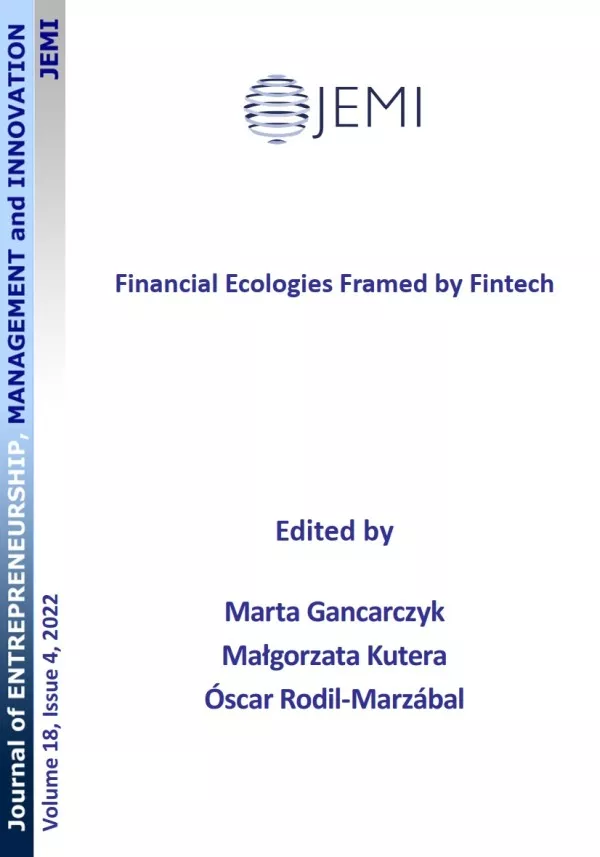An analytical framework for strategic alliance formation between a cooperative bank and a fintech start-up: An Italian case study
An analytical framework for strategic alliance formation between a cooperative bank and a fintech start-up: An Italian case study
Author(s): Francesca Bartolacci, Andrea Cardoni, Piotr Łasak, Wojciech SadkowskiSubject(s): Social Sciences, Economy
Published by: Fundacja Upowszechniająca Wiedzę i Naukę "Cognitione"
Keywords: incumbent bank; cooperative bank; fintech start-up; strategic alliance; success factors
Summary/Abstract: PURPOSE: The paper aims to identify the characteristics of the entities involved, the motivations and the processes of forming strategic alliances between a small cooperative bank and a fintech start-up. The paper bridges the research gap in the literature and explains the success factors of strategic alliance between considered entities. METHODOLOGY: We applied a typical qualitative research approach that consists of two steps. The first step was to develop an analytical framework to understand the critical success factors for the strategic alliance formation between banks and fintech start-ups. In the second step, we applied the analytical framework for a case study analysis, considering the strategic alliance between the Banca Popolare di Cortona and the NetFintech start-up. FINDINGS: Our research shows that there are different motives for strategic alliance formation for banks and fintech start-ups. From a theoretical point of view, banks’ motivations are based on outsourcing, innovation, the evolution of the business model, competitive advantage, saving costs, improving service quality, and learning. The main motives for fintechs include access to customers, loans, banking license, economies of scale, trust, and credibility. In the empirical part, we found that the crucial success factors are strategic alignment and hybridization, competence and experience, cultural value and territorial closeness, and professionalism. IMPLICATIONS: The results develop the knowledge about the best conditions for cooperative banks and fintech start-ups strategic alliances. The main limitation is that the paper is based only on one case study and it is related to cooperative banks and does not embrace other groups of banks. For this reason, it can be a basis for further research in this area. The described case study can be a good example to compare other cases of such alliances. Cooperative banks and fintech start-ups involved in a strategic alliance should share the commitment at the governance level. Critical are also the procedures of the alliance formation. ORIGINALITY AND VALUE: This article provides two main contributions to the literature on the technology-driven transformations of the banking sector. First, we elaborated a theoretical framework of the critical success factors for the bank and fintech start-up strategic alliance formation. Second, we applied the framework with the bank–fintech start-up cooperation in the local market in Italy. Contrary to previous research, which focuses mainly on commercial banks, this article presents the relationship between cooperative banks and fintech start-ups.
Journal: Journal of Entrepreneurship, Management and Innovation
- Issue Year: 18/2022
- Issue No: 4
- Page Range: 115-156
- Page Count: 41
- Language: English

